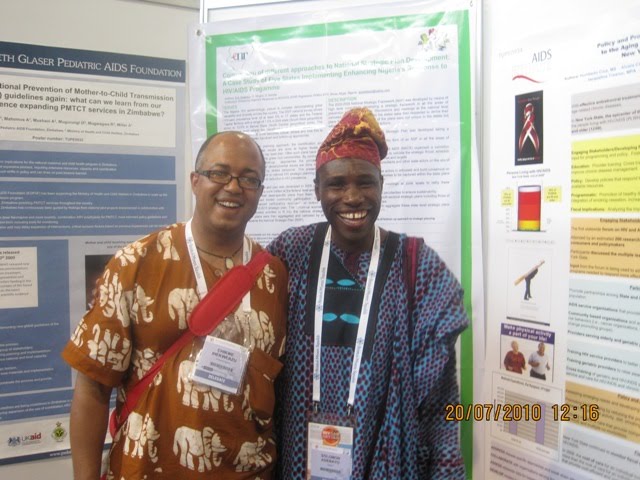Yes, we have two stands at the exhibition zone of the conference, but our contribution to the science at this conference has been minimal at best. I am yet to find any oral presentation out of Nigeria …and believe me I have been searching. Yes our National Agency for the Control HIV/AIDS has a stand at the conference, with some literature on the state of the epidemic in Nigeria, but over the first two days I have seen good research presented by colleagues from South Africa, Lesotho, Zimbabwe, and Rwanda. They have all been invited to present key aspects of their response on the big stage. I have looked around the sessions, hoping to find the odd presentation out of Nigeria, something to hold onto but nothing yet….Ill keep looking! I hoped that we would do more in presenting results from the operational research from the ARV treatment programmes in Nigeria. I thought we might join the scientific debate on the effects of raising the level of CD4 count at initiation of treatment to 350. I hoped to see some evidence or preventive research…Ill keep searching!
Never doubt that a small group of thoughtful committed people can change the world; indeed it is the only thing that ever has…Margaret Mead









Thanks for this write-up which was illuminating.
Just like you, I am equally worried by the observation that out of the 59 poster abstracts from Nigeria published in the Book of Abstracts, less than 40% were displayed at the stands.
While lack of funding could be a possible explanation as to why many of the presenters could not attend, it is also quite possible that some sponsored participants attended the conference without mounting their posters. I had a friend who did this once and I was appalled at how unfair this was to the funders and I gave him a piece of my mind.
Apart from the number pf abstracts, the quality of research abstracts from Nigeria when compared to those from other parts of the world is also something I would like you to comment on.
Kudos for a very good job.
Long time oh bros. I just read the piece below and felt very disappointed. The truth is there is something wrong, especially since there were a lot of presentations at the 5th national conference highlighting clinical and sociological researches in Nigeria. One of our people was suppose to attend and he is probably amongst those whose poster presentation spot is empty. All because, the Austrian embassy refused to give him a visa with no feedback or explanation as to why. I also know of about 5 people that wrote abstracts and also didn’t make it to the conference.
Just wanted to share some of the frustrations as well from our side.